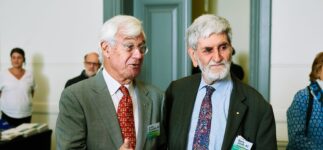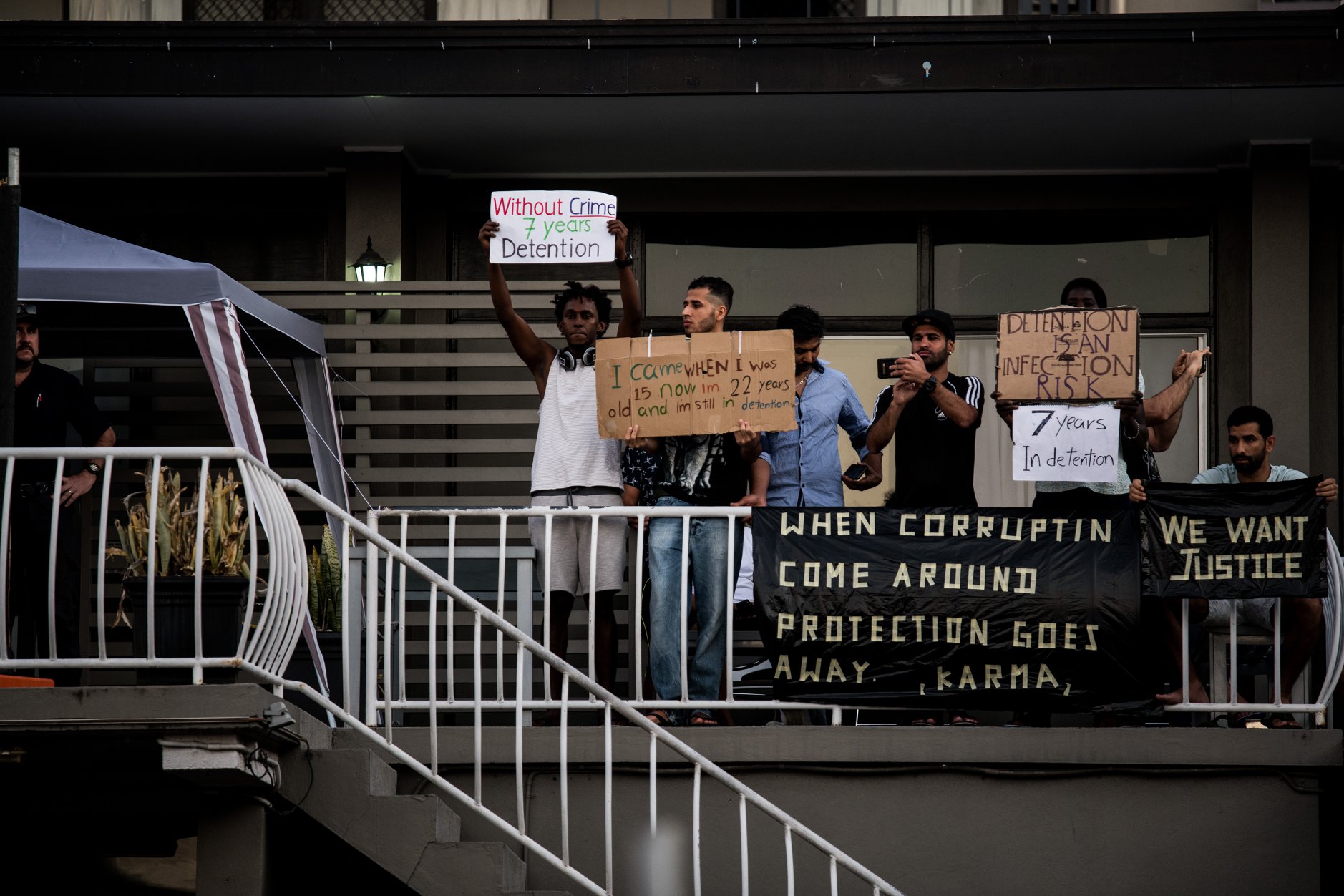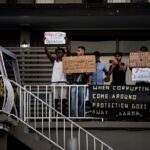Barry Jones’ Summing Up of Australia’s “Unconscionable” Treatment of Refugees

Then Australian PM Malcolm Turnbull first spoke to Donald Trump in January 2017, as he wanted to square up that the newly-inaugurated president would stick to a deal negotiated with former head of state Barack Obama, involving the US resettling our nation’s offshore asylum-seeking detainees.
Trump was unimpressed: why should his country take in 1,250 people who’d been imprisoned on Nauru and Manus for three years? He likened it to former US president Jimmy Carter taking in Cuban prisoners. And besides, Trump had just instated a ban on Muslims entering his country.
Turnbull explained that these offshore detainees weren’t “bad people”. They were on the islands because Australia had declared that anyone who arrived by boat would be detained offshore even if they were “the best person in the world” – even if they were a “Nobel Prize winning genius”.
“That is a good idea. We should do that too,” Trump replied. “You are worse than I am.”
Our prime minister went on to stress that as the detainees had been under his nation’s watch for a number of years, he could assure the president that these people were “economic refugees” and posed no threat. The only reason they were locked up was they had arrived by boat.
If they’d arrived by plane, our Turnbull advised, it would be a different story.
“What is the thing with boats? Why do you discriminate against boats?” Trump pondered aloud. But then it dawned upon him. “No, I know, they come from certain regions. I get it.”
What is to be done?
In recalling this exchange in the just released What Is to Be Done?, former federal Labor MP Barry Jones observes that while the US settlement agreement went ahead, this incident yet again reveals “that Australia has committed gross, unconscionable breaches” of international law.
In his new book, Jones – who led the campaign to abolish the death penalty – deliberates upon the state of the nation, covering the inability of our leaders to deal with “the greatest problem of our time” climate change and what can be learned from the COVID-19 crisis.
Scattered throughout his new work are reflections on Australia’s deplorable actions in regard to asylum seekers and refugees over the last two decades, with its policy of mandatory offshore detention and the questionable distinction it makes between planes and boats.
“Practising Christians in our major parties have abandoned the parable of the Good Samaritan,” writes Jones. “Once we dehumanise others, either systematically or randomly, rendering them nameless, faceless, without any identity… we inflict psychic damage on ourselves.”

Cruel, arbitrary and selective
As Jones sets out, around 132,000 Vietnamese refugees arrived in Australia between 1975 to 1985. This was mainly under the Coalition’s Fraser government. And the settling of these people had the support of Labor, the Liberals and the Nationals.
Since that time, the largest number of asylum seekers coming by boat arrived between 2009 and 2013. This amounted to 51,000 people. And it was Labor PM Kevin Rudd, who on 19 July 2013, commenced a policy of mandatory offshore detention with no chance of settlement.
With the coming of the Abbott government two months later, then immigration minister Scott Morrison unleashed Operation Sovereign Borders: a policy that included turning back the boats, expanding offshore detention, and reinforcing that genuine refugees will never be granted asylum.
However, as Jones outlines, 72,000 asylum seekers arrived in this country by plane over the years 2016 to 2019. This was under the Abbott-Turnbull-Morrison government and marked a much greater number of asylum seeker arrivals than those that sparked the offshore regime.
The former Labor MP explains that the people who arrive by air seeking refuge are treated “comparatively well”. The government is willing to grant those processed as genuine refugees asylum, and they’re welcomed into the community.
“The most punitive treatment is reserved for the dispossessed and desperate,” Jones adds.
A racist creed
According to Jones, there is a level of nativism at play when it comes to our country’s treatment of refugees and asylum seekers.
Nativism being an ideology in which a settler colonial society, like Australia, harbours hostility towards migrants from different cultural backgrounds.
Indeed, Australia was founded upon the White Australia policy, which was a series of laws and policies that sought to limit non-white migration. Right on federation in 1901, the Immigration Restriction Act was passed with a focus on preventing anyone entering but the British.
This nativist creed continued right up until the early 1970s, when the Whitlam government passed laws to dismantle the policy, which included the enactment of the Racial Discrimination Act 1975 (Cth).
As Jones tells it, nativism can be seen today in the criminalising of refugees by the major parties, which involves referring to asylum seekers arriving by boat as “illegals” and the imprisoning of them as if they pose some national security threat.
And this reluctance to help persecuted asylum seekers goes back decades. At the July 1938 Évian Conference in France, Jones recalls, Australia took “a very tough line against the boat people of the time”, which were the “Jewish refugees from Hitler’s Germany”.
United Australia Party trade and customs minister Thomas White asserted that favouritism could not be shown to “one particular class of non-British subjects” and he suggested that Jewish people should remain in Germany to sort out the issues they were having.
Sociopathic tendencies
As far as Jones is concerned, Labor hit a moral low point when it supported the Coalition’s Australian Border Force Act 2015 (Cth), which created prison terms for people – doctors, social workers, teachers – who revealed the deplorable conditions refugees were suffering offshore.
The polymath further asserts that those currently leading the country are bereft of the ability to comprehend the other, and they lack the capacity to empathise or understand the plight the victims of their harsh policies endure.
“Worst of all is that institutionalised sadism has proved to be electorally popular and oppositions are hesitant to attack it, so there is community acquiescence,” Jones writes, adding that the Coalition’s position on refugees has proved more popular than Labor’s, according to polling.
“That doesn’t make it right,” he finishes. “It simply means that a feeble argument strengthens the status quo.”







